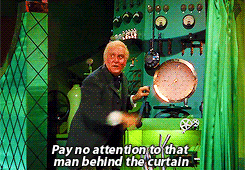Although I am past the age where I would consider attending a concert (unless James Taylor were performing), I follow with interest the efforts the Americans are taking to bust the virtual monopoly that Live Nation has over ticket sales and costs. What is especially interesting is the often aggressive stance the U.S. takes when it comes to monopolies and the narrowing of competition, which stands in sharp contrast to Canada's weak mewling sounds over corporate concentration. As I have said before, Justin Trudeau has never met a corporate entity he doesn't adore.
David Olive writes:
In Canada, we complain about corporate concentration but don’t do much about it.
What a contrast that is with the U.S., which filed a landmark anti-monopoly lawsuit last week against Live Nation Entertainment, the world’s biggest concert promoter, and its Ticketmaster subsidiary.
The lawsuit was brought by the antitrust division of U.S. President Joe Biden’s Department of Justice.
It alleges that with control of more than 70 per cent of primary ticket sales at the U.S.’s leading concert venues, Live Nation engages in monopolistic practices at the expense of live-event patrons, artists, promoters and venue owners.
The U.S. government seeks a breakup of the $22-billion (U.S.) Live Nation (2023 revenues), separating its promotion and ticketing businesses.
The Live Nation lawsuit is part of a Biden antitrust agenda aimed at curbing excess corporate power across the U.S. economy.
The Americans have also gone after Apple and Amazon and grocery chain mergers; while Biden's actions may be political in motivation, they stand in sharp contrast to Canada's inaction. Just recently, any concern about competitive pricing
didn’t stop Ottawa from approving the merger of telecoms Rogers and Shaw.
As well, there is the much vaunted voluntary Canadian Code of Conduct for grocers, which, as I understand it, will not lower prices but 'bring stability."
Canada’s grocery code of conduct is a set of rules and guidelines that seek to improve fair dealings in the industry, especially between big grocers and their suppliers. These suppliers include both farmers, as well as producers of various kinds of processed foods.
In other words, nothing really there for long-suffering Canadian consumers.
And while there is still corporate concentration in various U.S. sectors, putting upward pressure on prices, ours is particularly egregious,
with our Big Five banks, Big Three telecoms and grocery chains, and just two major airlines and railways.
[N]o one would argue that Canada can boast of adequate competition. The lack of it contributes to Canada’s laggard productivity growth.
I expect little to change here at home. Performative politics, or, as I like to call it, political theatre, has long taken precedence over substantive policy when it comes to taming the corporate beast. The lion continues to roar loudly.







